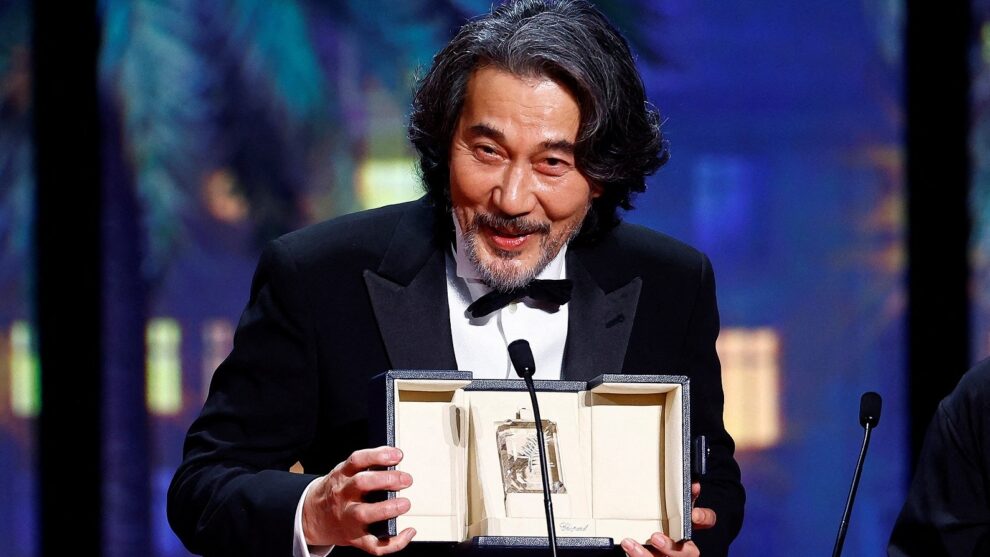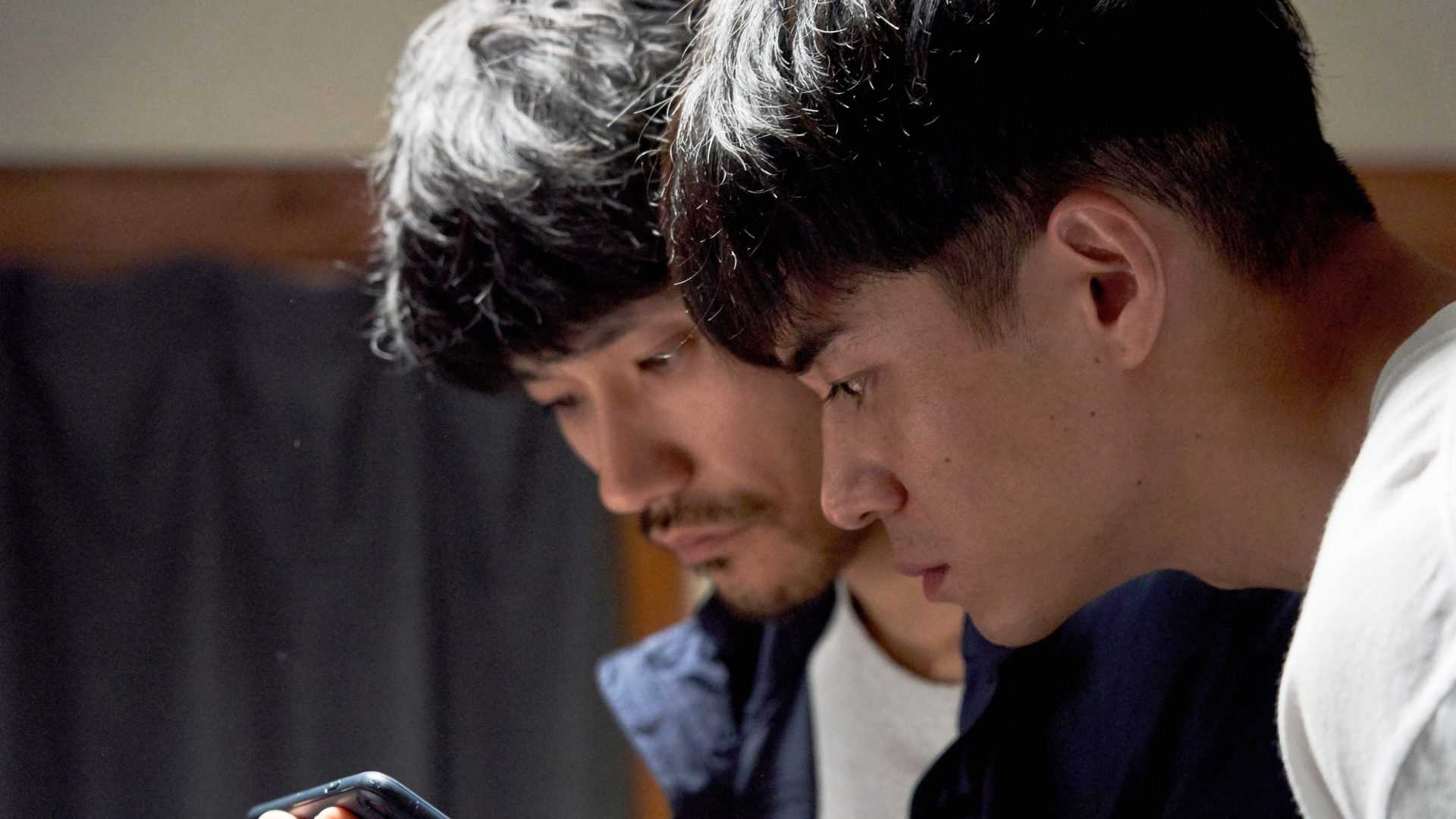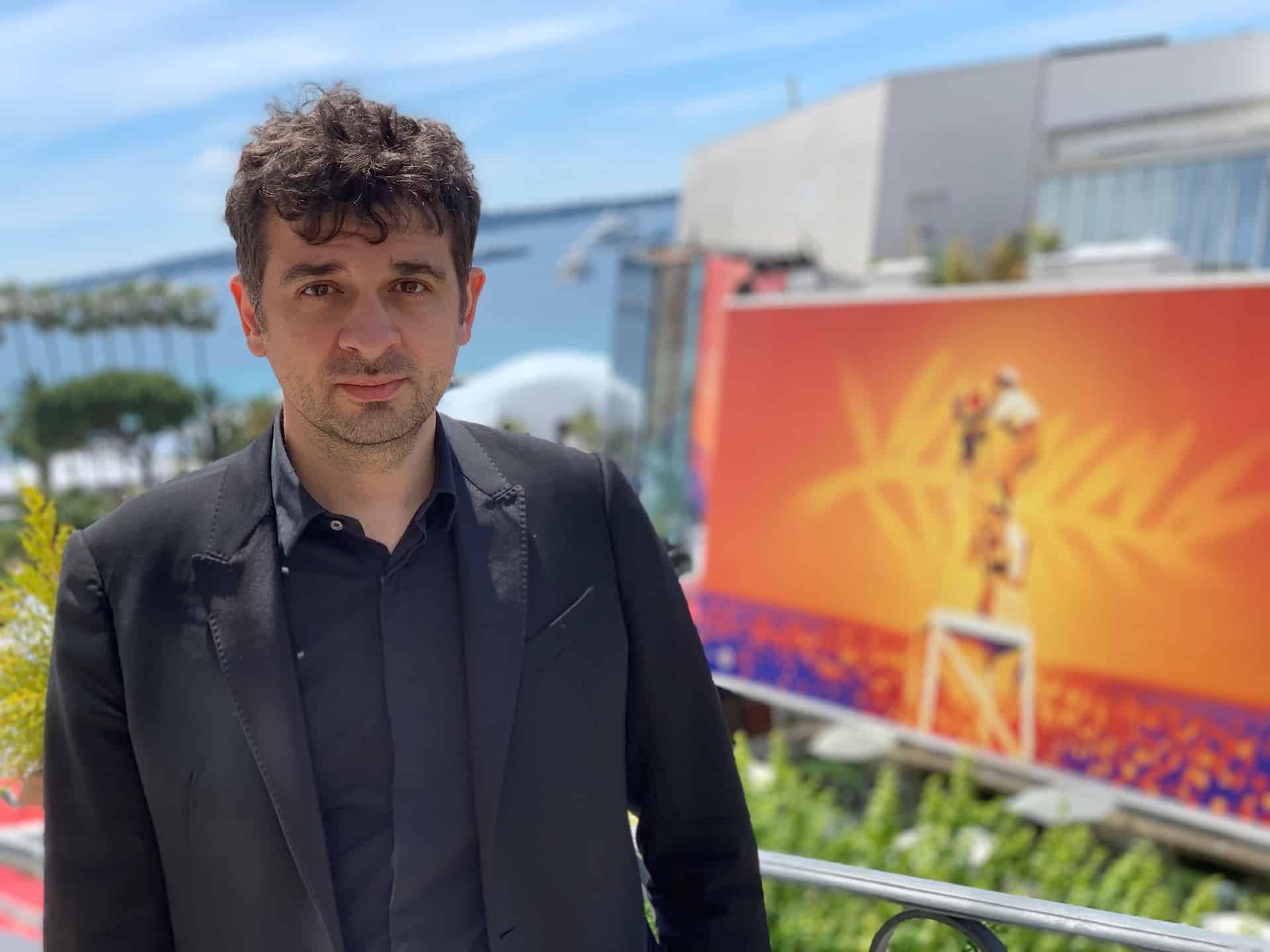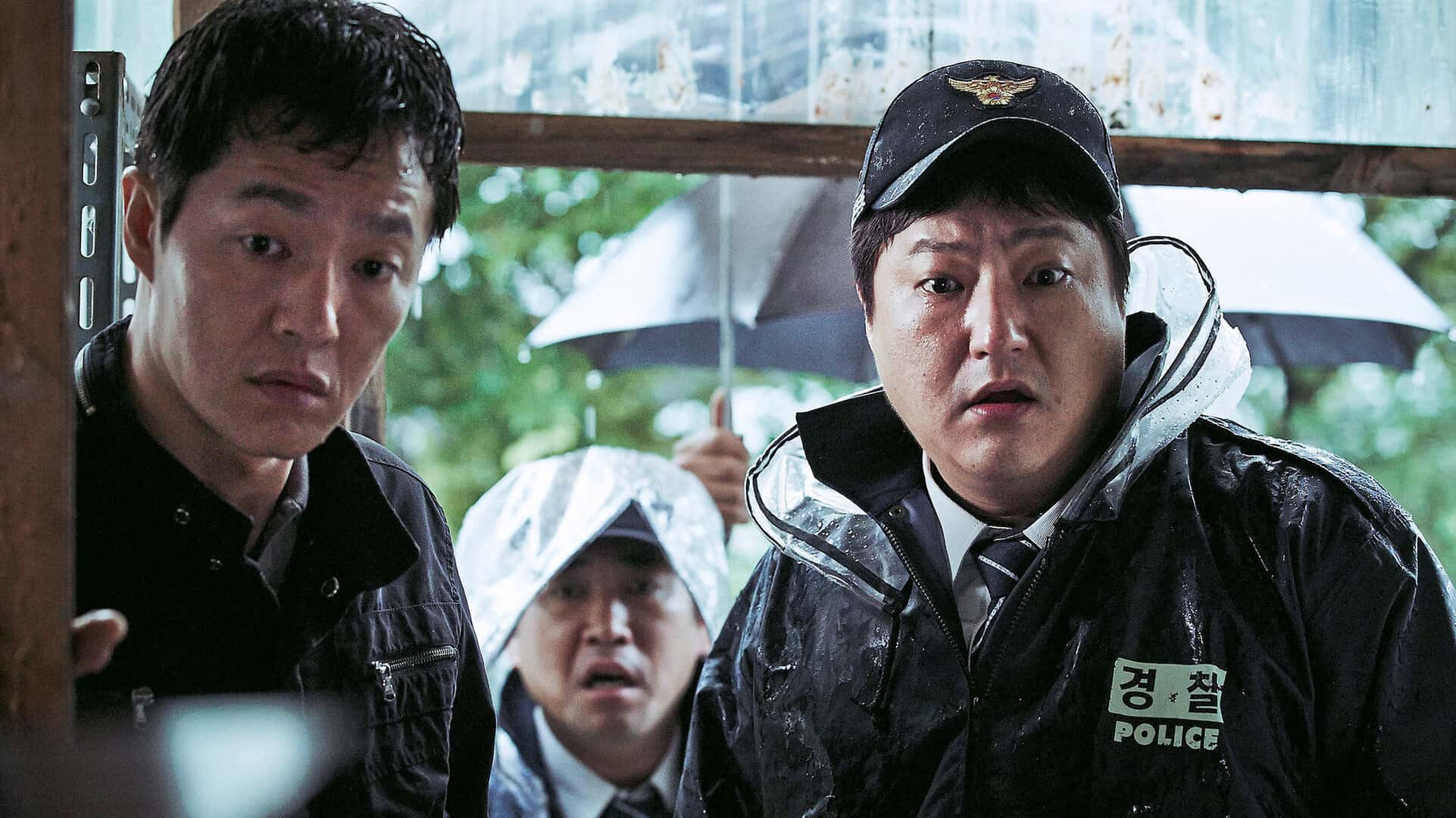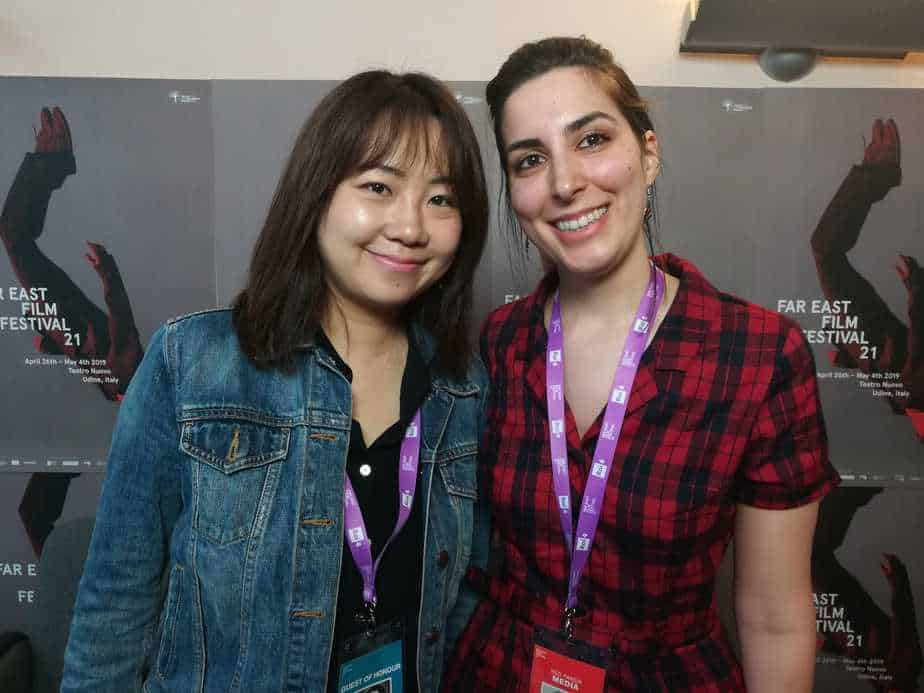This year's edition of Cannes film festival offered a number of high quality titles from Asia, both in competiton(s) and side bar programmes. One of the most awaited films was Takeshi Kitano's “Kubi” screened in Premiere section, in director's presence. Back to the samurai genre, 20 years after the critically acclaimed “Zatoichi” and with a period piece based on his own historic novel published in 2019, Kitano struggled to bring his characters close to the audience, but stayed faithful to the title by making many heads roll. “Kubi” (which was also the title of his novel) means “neck”, a beloved target of the samurai sword. This is allegedly the last film by “Beat”, if we take his statement before the festival kicked off seriously.
A year after his drama “Broker” brought Palme D'Or for Best Actor to Song Kang-ho, and five after he was awarded Palme D'Or for “Shoplifters”, Hirokazu Koreeda was back in the Official Competition with the melodrama “Monster” about bullying, homophobia and dysfunctional families told from three perspectives, winning yet again. This film dedicated to the recently deceased Japanese composer Ryuichi Sakamoto whose score accompanies the film, brought Best Screenplay Award to Yuji Sakamoto and bagged Queer Palm. It is a strong and touching tale with a bit of uneven pacing, but of undeniably great quality.
Another big winner was Vietnamese-born French film director and screenwriter Tran Anh Hung whose historical romantic drama in French language “Pot au Feu” brought him Best Director award.
Although he went back home empty-handed, Wang Bing is one of the three documentary filmmakers who have entered the official
Competition of Cannes in its long history. Filmed over six years, “Youth (Spring)” is a remarkable take on the extremely hard working
conditions of garments factory workers in the industrial satellite city of Shanghai.
Another contender that won over hearts of critics is Wim Wenders's fiction feature “Perfect Days” about an ageing public toilet
janitor in Tokyo played by Koji Yakusho. Entirely shot in Japan and starring (among many others) the legendary Min Tanaka,
Wenders ode to simple joys of life was one of the festival's highlights. The jury justifyingly decided to award Yakusho with the Palme
D'Or for the role of a quiet man who is as dedicated to his simple job as to his books and collection of audio tapes.
Un Certain Regrad competition was also rich on Asian titles. Zoljargal Purevdash entered the history as
the first from Mongolian helmer to walk the red carpet in Cannes. Her coming of age drama “If Only I Could Hibernate”, based
on her own life, was one of the most impressive contenders.
Anthony Chen's “The Breaking Ice”, a story very much inspired by French New Wave about three young people meeting
and bonding in Yanji, a town on China's border with North Korea, is stylish, mysterious and clever in use of the setting.
Ali Asgari and Alireza Khatami's “Terrestrial Verses” built in the form of 12 short, completely separated stories that bare the
names of their main protagonists was one of the bravest submissions. The film shows different situations of oppression in Iran, some of them completely absurd and some uncomfortable, with most of them handled with a great dose of deadpan humor.
The true gem of Un Certain Regard was Wei Shujun's murder mystery drama “Only The River Flows” shot on 16mm, about a police
officer Ma Zhe (Zhu Yilong) whose mind start playing tricks on him, fogging his abilty to distinct fantasy from reality. Superbly acted and
build on a rock-solid script Wei co-penned with Shunlei Kang and Hua Yu, this is a film that will conquer wide audiences.
The list of Asian films who made it to Cannes is very long, but these are some of the highlights worth mentioning.
Click on the titles for the full articles
Film Review: Hopeless (2023) by Kim Chang-hoon
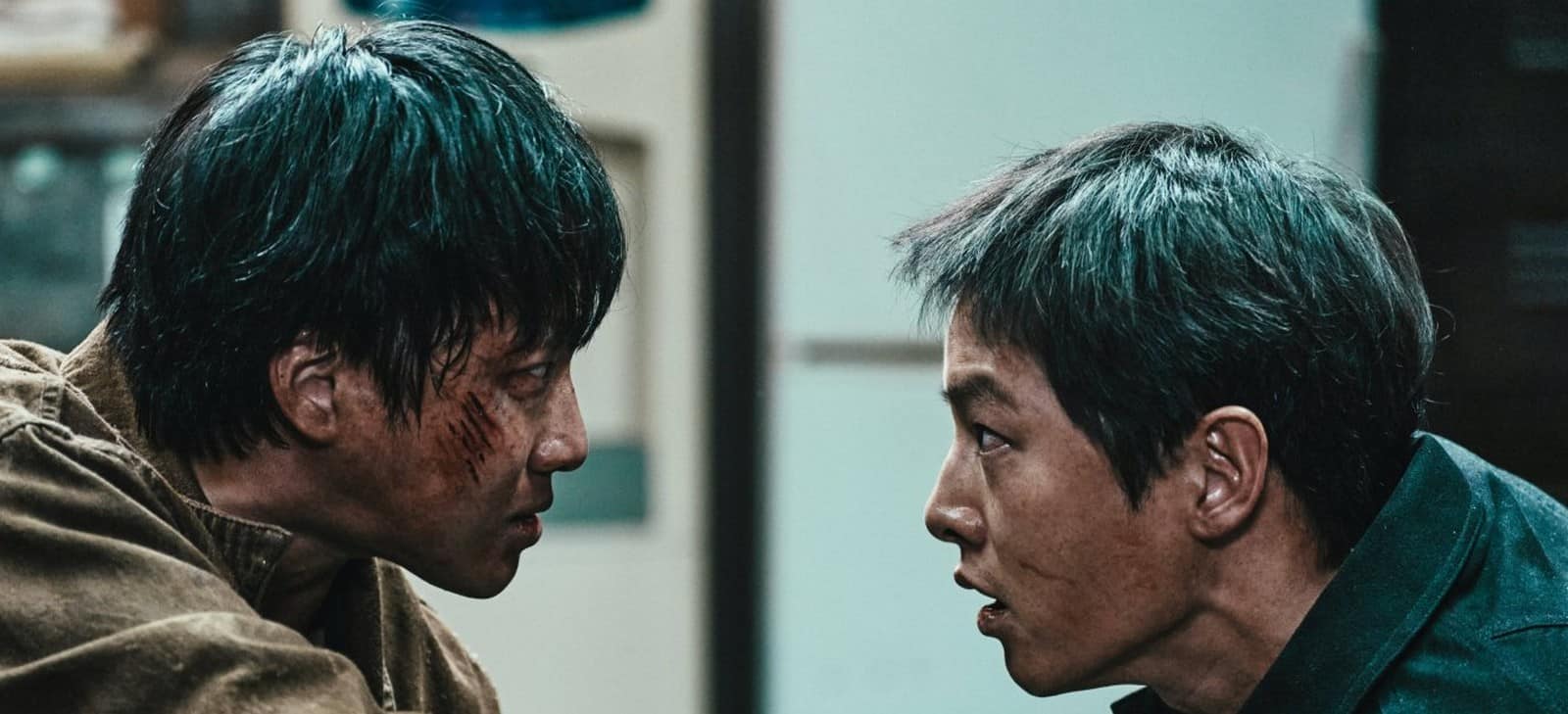
The epicenter of the film is the master-apprentice relationship between Chi-geon and Yeon-gyu. Chi-geon is an almost heartless gang leader with a murky but intriguing past. There is evidence of an injury on his ear, which, as the film progresses, is explained as an important moment of character development. His workshop of bikes is simultaneously represented as a quasi-artist's studio, humanizing and shading him in some unexpected colors. Chi-geon develops a soft spot for Yeon-gyu but does not shield him from the misery, pain and torture of the world they now share. For Yeon-gyu, Chi-geon becomes a lesson as well as a foreshadowing of one possible future. (Khushi Jain)
Interview With Kim Chang-hoon
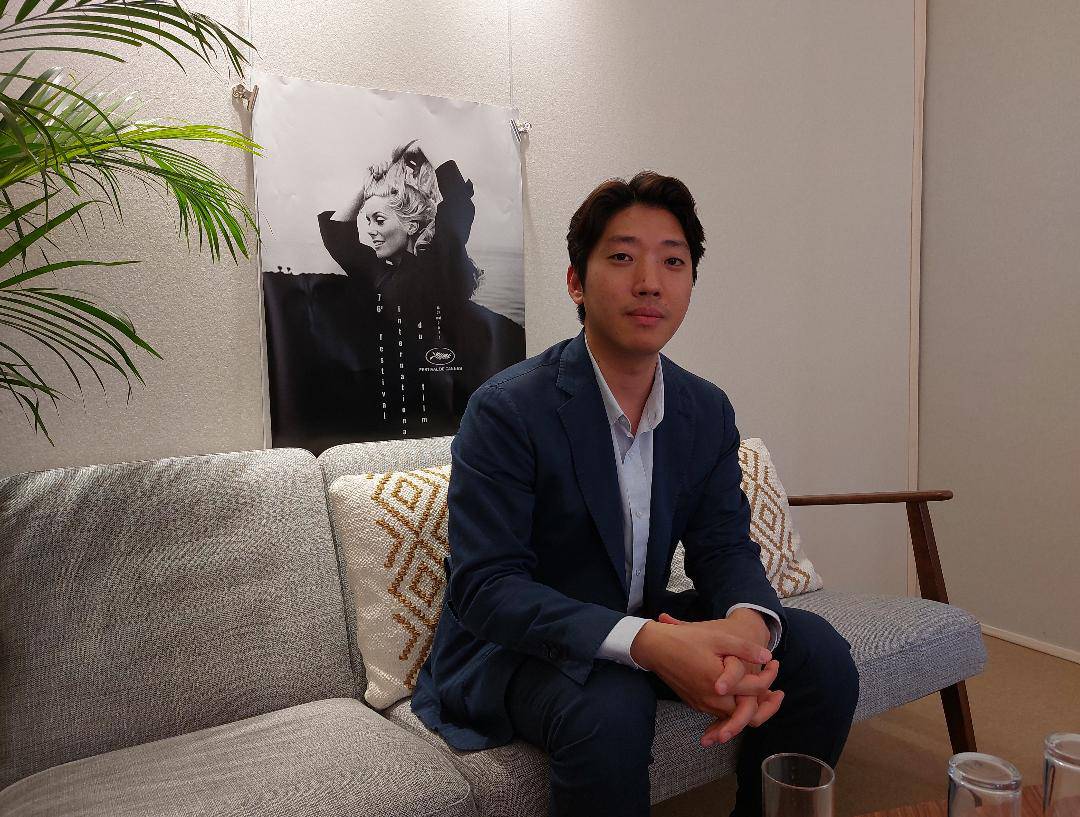
Your character development turned interesting because your lead man isn't very likeable. He bursts with aggression. His language is abusive, and he falls more than once as he displays a very bad temper. And then, there is his immediate gangster boss who tries to shelter him from a man who controls the whole city, putting his own life at risk.
I am surprised that you see Yeon-gyu that way because he does good deeds more than once. If you look at the starting point of the movie, when he attacks the fellow student with a rock, it is not a type of violence that comes from nowhere since he is trying to protect his half-sister Hayan (Hyoung-seo Kim). He does have a kind of sympathy for her despite of the fact that she is treated completely differently at home as the legitimate daughter of his drunkard stepfather. He is also trying to protect a little boy whose father is a gambler and junkie. If you feel sympathy for Chi-geon (Song Joong-ki) is because he is very linked to Yeon-gyu. Their past and future are mixed. The present of Yeon-gyu is Chi-geon's past. And I have to say that before meeting the young gangster, my hero was only seen once displaying aggression. He is student, who is slowly getting dragged deeper into the world of violence. It is not something that he does consciously because it's his environment that forces him to become the same. I also showed the consequences and risks of certain decisions that he had made. When you are exposed to beatings, bullying and other forms of violence, you are doomed to become the same. Because he is young, and very low in the organization's structure, he has to obey those monsters. Let me remind you that he tried to save the life of his neighbour, when he prevented him from going to the police and report some crimes. He managed to prevent a larger evil. (Marina Richter)
Film Review: Kennedy (2022) by Anurag Kashyap
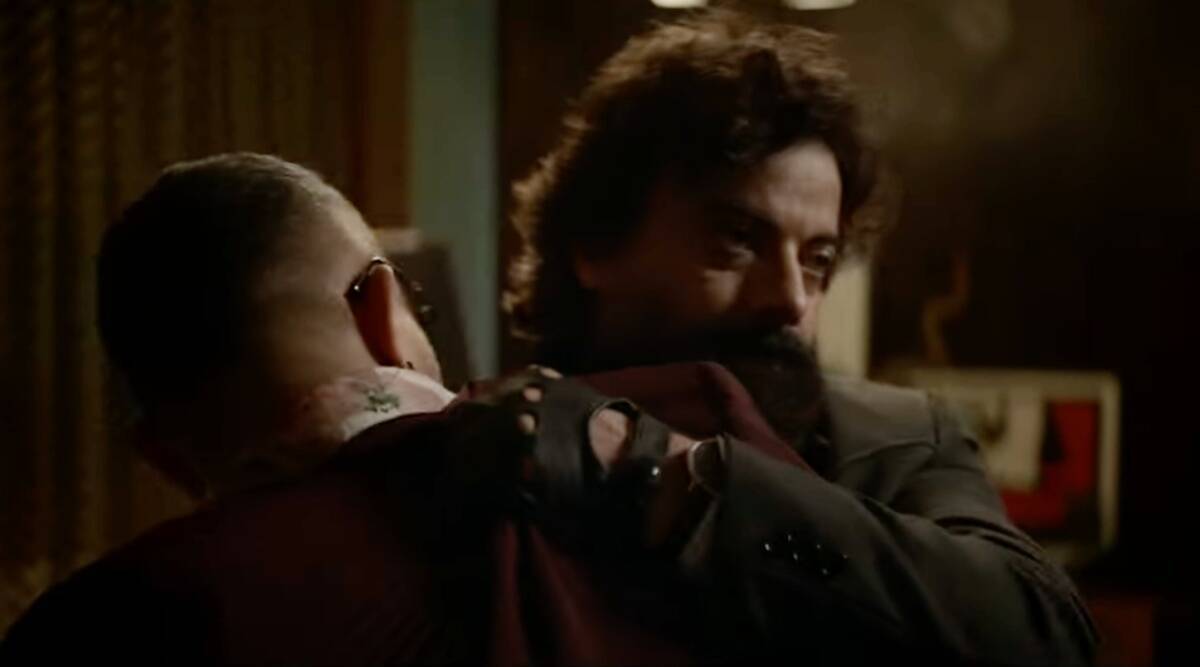
The narrative is driven by its titular character. The moody, angry and silent type, Kennedy is a big man with a beard that needs shaving. His trajectory from the khaki uniform to the tailored suits of his victims is not a trajectory at all; there is no identifiable change in his person other than a dire need for revenge, there is no before and after. Unfortunately, this fossilized tendency is something that Bhat adapts in his portrayal as well, doubly damning the character. His performance is plain and artless, which becomes particularly irritating in moments of emotional intensity. The singular element of interest are the ghosts of the murdered who perpetually haunt him. Opposite him, Sunny Leone plays Charlie, a weak whisky-soaked femme-fatale female lead. Her plastic squeamish giggles present her with an opportunity to shine as more than a mere object of titillation. (Khushi Jain)
Interview with Anthony Chen and Zhou Dongyu
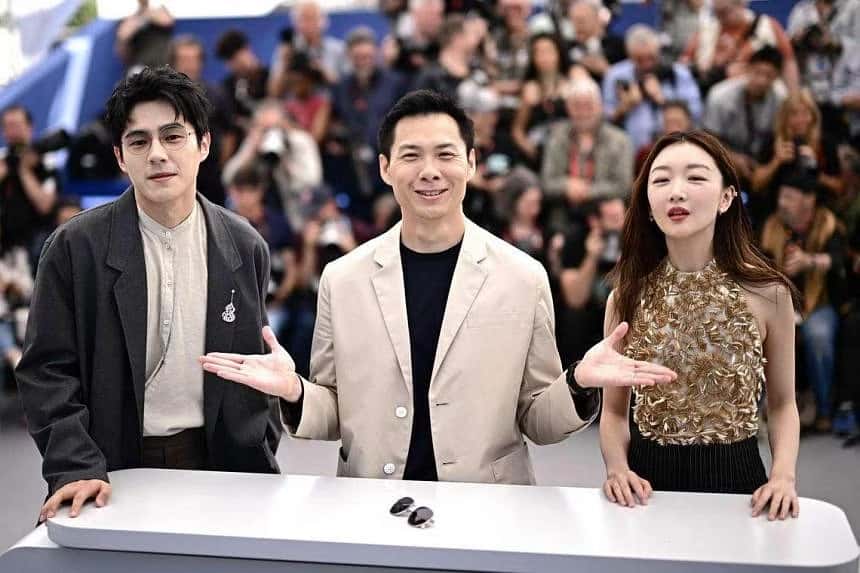
You [Anthony] got the actors together before you had the script. The dynamic between the three of them is quite complicated. How did that come about? And how did you [Dongyu] develop that?
Dongyu: Haofeng and Nana are both from a big city, just like Haoran and I. There was a natural bond between us when we first met. But Chu, like the character he plays, is from a small town. While Haofeng and Nana have seen the outside world and know what is going on there, Xiao can only imagine things.
Anthony: The development of this dynamic is quite interesting because since I really knew who I had casted and had such a short time to make this film (I completed the script ten days before we started shooting), I was writing to the strengths of my actors. Their characters come from where they themselves come from. When Nana talked to her mother on the phone, Zhou was speaking in her own native accent. Even the whole idea of figure skating and having a career in sport comes from the fact that Zhou trained in gymnastics when she was much younger. I wasn't trying to shape the characters in the exact images of my actors but I think I was taking bits of them. (Khushi Jain)
Film Review: In Our Days (2022) by Hong Sang-soo
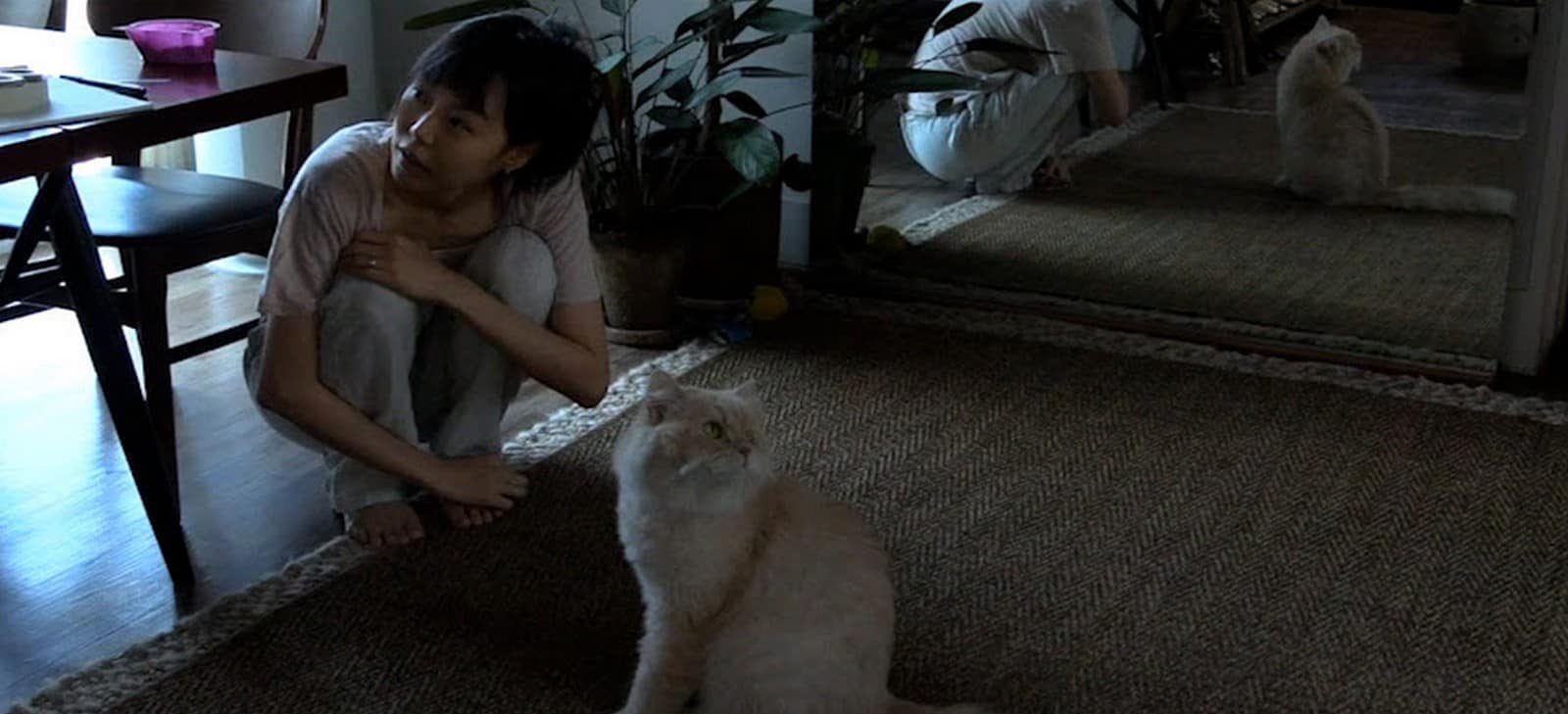
The temptation to smoke out this connection is only mild, and almost unimportant. The focus of “In Our Day” is on the present, on the singular day that it spans. Sang-won forms an affectionate bond with her roommate's cat and her feline presence punctures her musings on acting. Uiji has been told to stay off cigarettes and alcohol and that is precisely what he does not do. Alcohol can only be absent for so long, this is after all a Hong Sang-soo film. The epicenter is an existential strain pivoting around meals and tables; there is Jung-soo's work table which also doubles as a dining table, and a smaller outdoor table on the balcony, and then there is Uiji's coffee table gradually getting cluttered with take-away boxes of fried chicken and soju, and the table on his terrace holding a Johnnie Walker and a pack of cigarettes. The table is the locale for the primary ideological concerns of the film, and its mundanity adds a naturalistic flavor to the philosophical business. (Khushi Jain)
Film Review: In Flames (2023) by Zarrar Khan
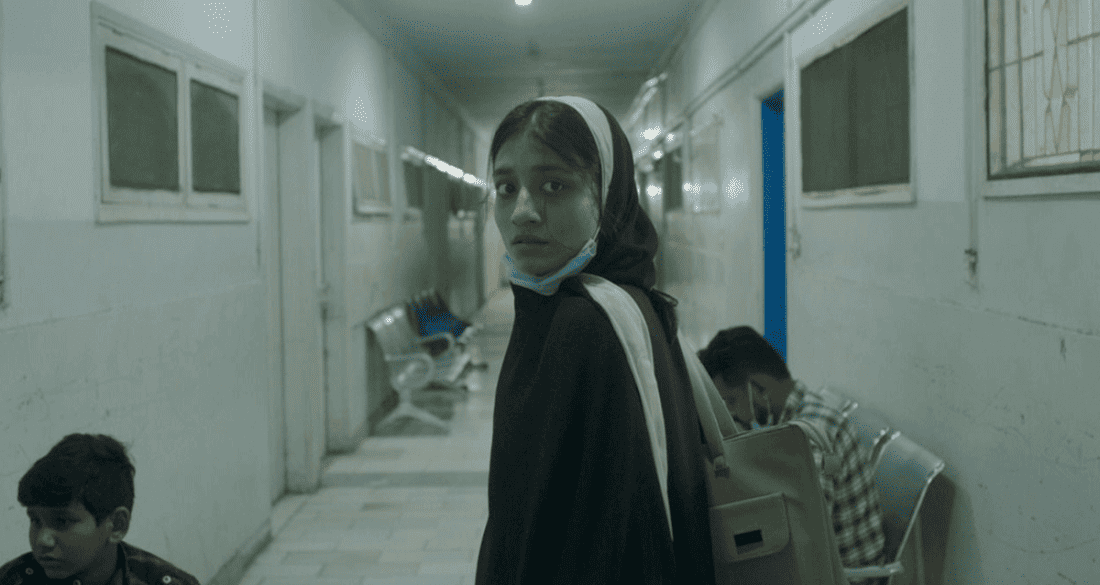
The film is ideologically very much rooted in feminist politics and uses the unreal to represent the real. The (returning) ghost of Mariam's dead father welds trauma with the cultural beliefs in djinns, and Kahn uses him as a tool to speak about the patriarchy. As the younger brother, Bilal is insulated and perhaps also ignorant of everything that the women of the house go through. Suffering individually at first, Mariam and Fariha come together in the end as the daughter witnesses her mother's strength and the mother fights to restore her daughter's. (Khushi Jain)
Interview With Ali Asgari and Alireza Khatami
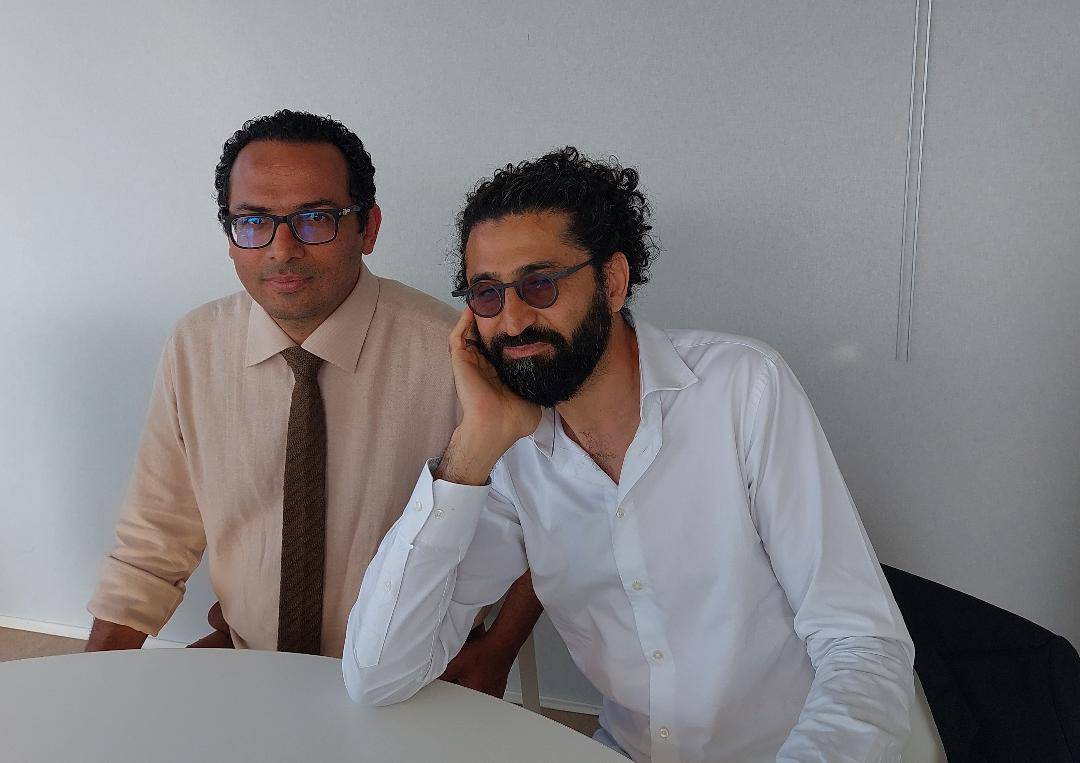
The first question regards your past. You couldn't stand each other, and now we had the pleasure of watching your second joint directorial project. What changed your opinion, when did you find a common language and what was the problem in the first place?
Ali Asghari: I can openly say why I didn't like him. We both had our films at the Venice Film Festival in 2017, and we previously knew each other only from Facebook, but we hadn't met in person. He asked me to get him a ticket for my screening, and then I saw him walking out of the cinema after 20 minutes. That is why I was angry with him.
Alireza Khatami: (laughs) I was the first to leave. I could have told him that I was sick, but that would be a lie. I think that leaving cinema was a very important moment, because I was so exhausted by social realism, and Ali is one of the leading figures of this movement. Of course, he was doing it in a different way than the others because his focus was very interesting regarding the development of characters and depicting human lives. I connected to this very intimate personal side of it, but I wasn't really connecting with the rest. I thought “what a waste of talent”. At the same time, he was asking me why I am not getting close to my characters. Seven years later we are here, with a film that I think it's both formal and intimate. We are pushing each other's boundaries to get a new form. (Marina Richter)
Film Review: If Only I Could Hibernate (2023) by Zoljargal Purevdash
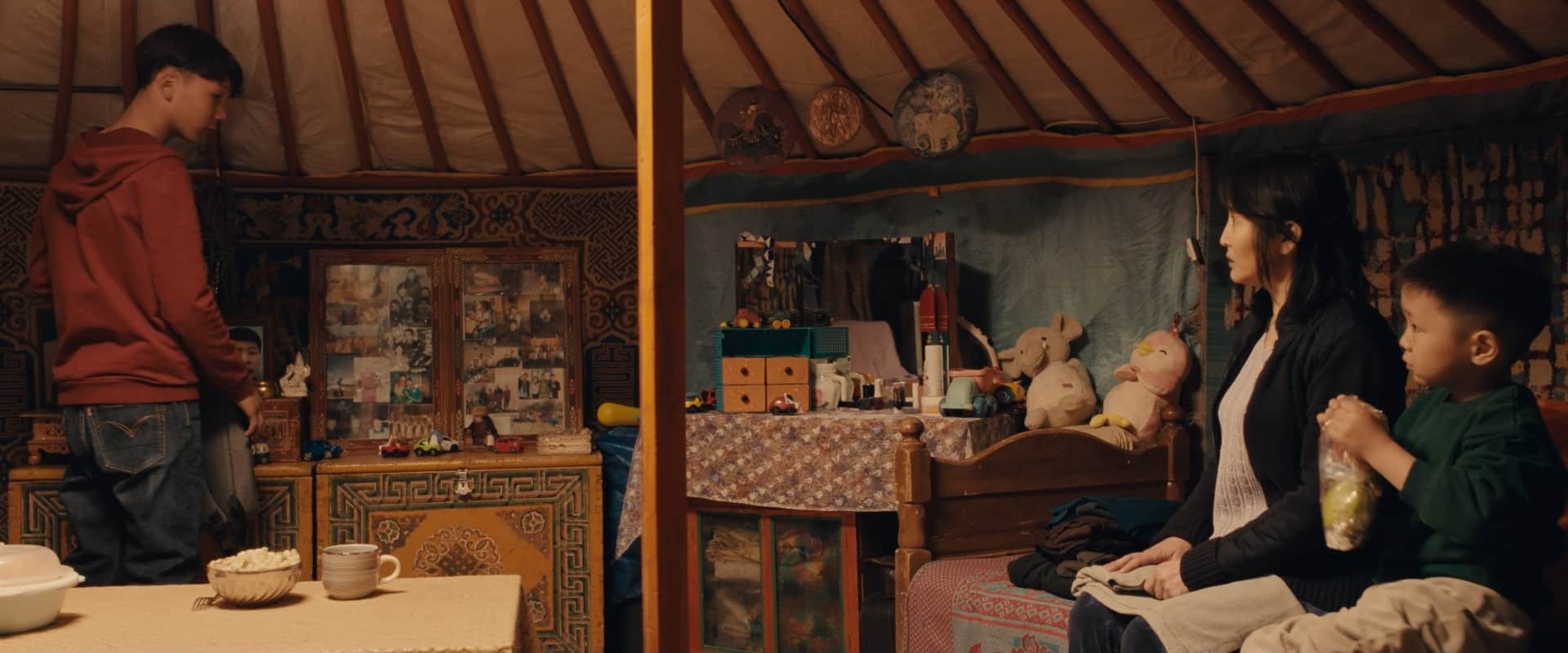
Puevdash's direction does not invite pity but inspires strength. The siblings exhibit unyielding perseverance, never giving up. The bleakness of their situation is repeatedly cut by their tenacity and love. They share a single cup of noodles, play a game of cards, and laugh at each other's farts, finding small joys and sticking together. Puevdash shows off how skilled she is at blocking in the ways that she captures these three siblings on the camera. There is nothing radically original about her story but it has a unique rhythmic pace to it; there is never a dull moment. (Khushi Jain)
Interview with Zoljargal Purevdash

What is it like to know that your movie is the first from your home country to be competing in Cannes?
I am really honored, extremely happy, and of course – lucky. I actually didn't know that there never was a Mongolian film in Cannes before, because we have notable directors whose films travelled to international film festivals, and I was completely convinced that they must have been in Cannes as well. So, when the artistic director Thierry Fremaux said that at the press conference, I couldn't believe my ears. I felt a mixture of joy and pressure. That was unexpected. He went on about how this was the historic moment for the Mongolian cinema, and I was thinking: “I never wanted to become a part of history, but thank you.” So, basically, I am sitting in disbelief, listening to his words about how very much he was looking forward to see Mongolian filmmakers walking the red carpet and I knew that I absolutely needed to bring the kids to Cannes, and do that walk with them. All three of them are here. (Marina Richter)
Interview with Wei Shujun

You let your lead, the Police Inspector Ma (Zhu Yilong) move into his new office which is set up in a closed movie theatre. Was that maybe your comment on the current state of the cinema, and a reaction on the pressing question if it's slowly dying?
The main reason I put him there was because of what we are doing. I am staging a play in which actors perform in a theatre. I personally thought that this would be the most interesting set up for the movie. Even yesterday, when I re-watched my movie with the audience in the cinema, I found it funny. Also, each time Inspector Ma is faced with a criminal case, the truth is before his eyes and he can't see it, which means he is passive. He is like a marionette. So, what better space could I give him than the actual ‘stage'? (Marina Richter)


